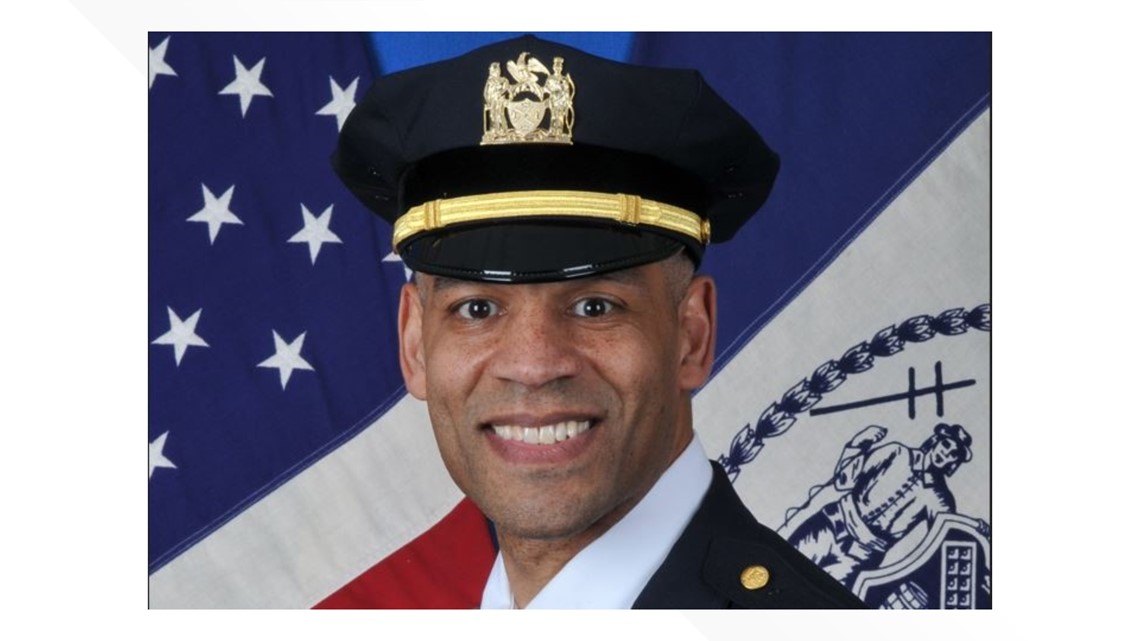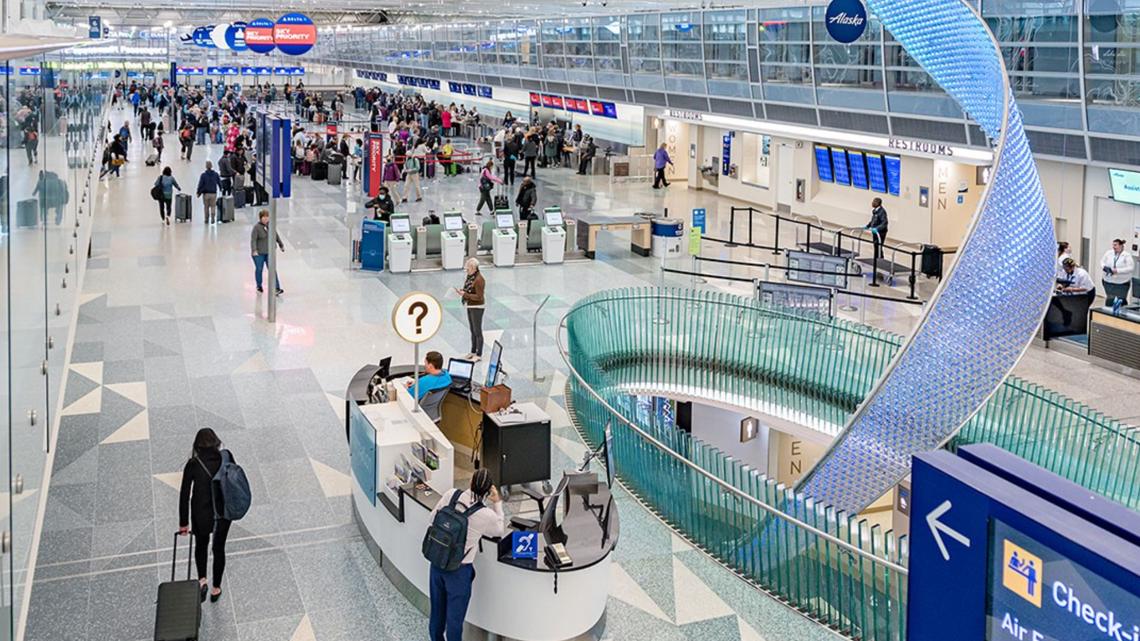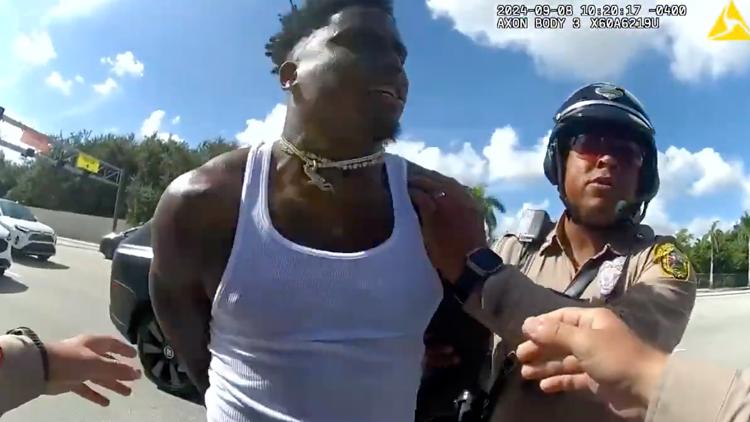Kare11
Metro Transit Police Chief Morales ‘no longer an employee’


Ernest Morales III is no longer the police chief of Metro Transit, a month and a half after KARE 11 reported he was put on leave.
A spokesperson with the Metropolitan Council confirmed to KARE 11 Monday that Morales is “no longer an employee.” They did not elaborate on why he is no longer employed with the agency, or the circumstances of the exit.
Morales was sworn in in March of 2023. He said at the time his number one priority was to instill the feeling of safety. He took over at a time when the organization was reporting a rise in violent crime and drug use on buses and trains.
On Aug. 9, KARE 11 reported Morales was put on leave, but a spokesperson with the Metropolitan Council did not clarify why or for how long the leave would continue.
Captain Joseph Dotseth has agreed to serve as Interim Metro Transit Police Chief, officials said.
Kare11
Murder charged filed in 1985 Wisconsin killing


A Tomah, Wisconsin man is charged with causing the death of Terry Dolowy, who officials say was decapitated and burned.
VIROQUA, Wis. — A man has been charged with murder in western Wisconsin, decades after a woman’s body was found decapitated and burned.
The charge of first-degree murder against Michael R. Popp was announced in a press conference Tuesday. According to Monroe County District Attorney Kevin Croninger, Popp was 21 at the time. He is now 60.
The case dates back to Feb. 14, 1985, when 24-year-old Terry Dolowy was last seen. She was found dead four days later, Croninger said, on Mohawk Valley Road, south of La Crosse.
Croninger said the charge against Popp comes amid new developments in forensic science. Vernon County District Attorney Angela Palmer-Fisher said the efforts of multiple counties and multiple generations brought them to the charge filed Tuesday.
Kare11
MSP to offer sensory rooms in both terminals


Airport officials say the first room will open in Terminal 2 as early as 2027, with a second room opening the following year in Terminal 1.
MINNEAPOLIS — Traveling can be stressful, so officials with the Minneapolis-St. Paul International Airport (MSP) are aiming to create a more calming atmosphere for passengers ahead of their flight.
The Metropolitan Airports Commission (MAC) announced it will be partnering with Minnesota-based Fraser to design sensory rooms to provide passengers a chance to check some of the anxieties that come with travel. MAC officials say the first room will open in Terminal 2 as early as 2027, with a second room scheduled to open in Terminal 1 the following year.
“This is another major step to create a more accessible and inclusive airport experience, to help passengers with sensory sensitivities, or those who just need a quieter space to decompress before a flight,” said MAC CEO Brian Ryks in a release. “Through our Strategic Partnership program, we are expanding our relationship with Fraser, which has provided guidance and support to the MAC for many years to help us develop impactful accessibility programs and services at the airport.”
The first sensory room in Terminal 2 will be part of the North Expansion project, while the second room will open in Terminal 1’s G Concourse between gates G8 and G18. The rooms will include dimmable lighting, different seating options and “sensory-friendly furnishings,” according to the release.
“We are so honored to partner with MSP Airport to bring sensory-friendly spaces to individuals who need a different experience at the airport in order to travel,” said Fraser President and CEO Diane S. Cross in a release. “Our partnership with MSP Airport is a big step toward making Minnesota sensory-friendly for all.”
Kare11
Tyreek Hill case raises questions of driver’s rights


Civil liberties experts say it’s best to cooperate and comply with law enforcement demands, but motorists have the right to remain silent and refuse a search.
MIAMI — American drivers might universally wince or brace themselves at the sight and sound of flashing red and blue lights and blaring sirens, but all drivers have constitutional rights when pulled over on the road.
The question of one’s responsibility to comply with all instructions given by a law enforcement officer recently came up following a pregame traffic stop this month involving Miami Dolphins wide receiver Tyreek Hill.
Although Hill has acknowledged he could have handled the interaction with Miami-Dade police better, the video of him being pulled out of his car, placed on the ground and handcuffed revived a national conversation about the realities of “driving while Black.” Studies show Black motorists are more likely to face the threat or use of force by police in traffic stops like Hill did, and many Black families give a version of “the talk” to loved ones about how to interact with police officers.
“The immediate short-term goal is to get out of the encounter without being arrested, and the way to do that, again, is to communicate not just with compliance, but obedience and respect, even if you don’t think that that’s deserved,” said Georgetown University law professor Paul Butler.
Studies show people of color are often disproportionately targeted for traffic stops in the U.S., said Jenn Rolnick Borchetta, the American Civil Liberties Union’s deputy director on policing.
“They search them more often, even as the rate at which they find evidence of some wrong is lower for Black and Latino people than white people,” she said.
In 2022, Black people accounted for nearly 13% of traffic stops in California, even though they were only 5% of the state’s population. Minneapolis, a predominantly white city, found in 2020 that Black drivers accounted for nearly 80% of police searches and routine traffic stops.
Miami lawyer E.J. Hubbs said he believes both Hill and the police officers in the now-viral video of the arrest had faults in their interactions.
Body camera footage showed the officer asking Hill to roll down his window and Hill complying, Hubbs said. Hill then told the officer “to give me my ticket,” after handing him his identification, which Hubbs said was also fair.
Where things escalated was when Hill decided to roll his window back up, as the officer’s body camera footage shows.
“When Mr. Hill refused to roll down his window, that was not complying with one of his commands,” Hubbs said. “And when he was asked to exit the car, he didn’t comply with that command, at least immediately.”
Lawrence Hunter, a former Waterbury, Connecticut, police captain and law enforcement coach, added that Hill appeared confrontational when asking Miami-Dade County officers not to knock on his window.
“From that point, because of the combative nature that Tyreek Hill exposed, the officer then asked him to get out of the car,” Hunter said. “That’s an officer safety thing. He already feels that this is uncooperative. … So therefore, it is best to just get him out of the car.”
Hunter added that Hill’s refusal to keep his window down could be considered a matter of officer safety.
During a traffic stop, drivers have constitutional rights against incriminating themselves or permitting the search of their car.
The right to remain silent is the most widely known right, Borchetta said. Drivers also have the Fourth Amendment right to be free from unreasonable searches and seizure, and have the right to ask traffic officers questions.
“You don’t have to tell the police where you’re coming from or where you’re going,” Borchetta said. “If they ask to search you or your car, you can say no. And if you’re not sure whether they’re asking or telling, you can ask them that question. And they have to tell you honestly.”
Passengers can also ask if they can leave the scene of the traffic stop.
Once a driver has been pulled over, police will likely run the plates of the vehicle through a database to check whether the car has been stolen or see if any other actionable information comes up, said Hunter, the former police captain.
The officer may also take a long, hard look at the vehicle for visible contraband, weapons or drugs, he said.
The officer does have the right to ask drivers and passengers to get out of the car and can use reasonable force to make sure that happens. Officers can also pull drivers over even if they haven’t committed an infraction, as long as there’s reasonable suspicion to think the person has, according to Butler, the Georgetown University professor. This policing practice is known as a pretextual stop.
Law enforcement can sometimes take advantage of civilians’ lack of knowledge of the law, Butler added. In that case, it’s best to comply and communicate with officers, and complain later.
Drivers can also record the conversation if they feel like the interaction with the officer has been unnecessarily escalated. But they should be sure to let the officer know that they are being recorded. Asking for and writing down the officer’s badge number, time and location of the interaction is also permitted.




